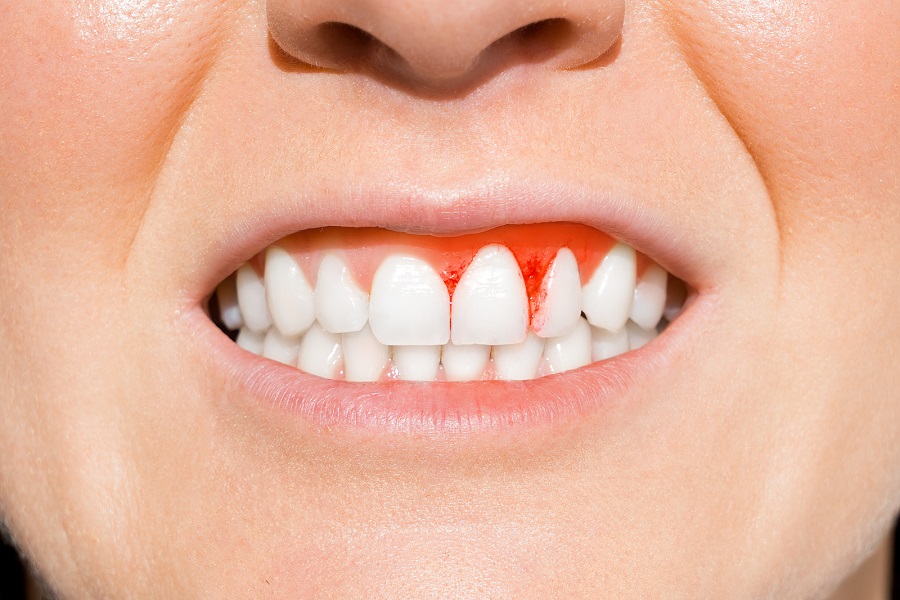Dental Crowns After Root Canal Therapy: Why They're Often Needed
Posted by Ed Bishay on Jun 16 2025, 12:04 AM
Undergoing root canal therapy can be a daunting experience for many. However, it's often a necessary step in preserving your natural tooth and alleviating pain caused by infection or decay. Once the procedure is complete, you might wonder what comes next. This is where dental crowns come into play.
Dental crowns serve as protective covers that restore both the function and aesthetics of your tooth after root canal treatment. But why are they so important? Let’s explore how dental crowns can not only enhance your smile but also safeguard your oral health in Sugar Land, TX. Whether you're considering this option or simply curious about the process, understanding their role will help you appreciate why they’re often needed after a root canal.
Understanding Root Canal Therapy
Root canal therapy is a dental procedure designed to treat an infection or damage deep within the tooth. This treatment focuses on the pulp—the innermost part containing nerves and blood vessels. When this area becomes inflamed or infected, it can lead to severe pain and swelling.
During the procedure, your dentist will remove the affected pulp. Once cleared of infection, they’ll clean and disinfect the inner chamber before sealing it with a special material. This restoration allows you to keep your natural tooth instead of opting for extraction.
Many patients are surprised by how effective root canal therapy is at relieving discomfort while preserving their smiles. With advancements in technology and techniques, this treatment has become more comfortable than ever—making it an excellent option for those facing serious dental issues.
The Purpose and Benefits of Dental Crowns
Dental crowns play a crucial role in restoring damaged teeth. They act as protective caps that cover the entire tooth, providing strength and stability after significant procedures like root canal therapy.
- One of the main benefits is enhanced durability. Crowns can withstand normal biting and chewing forces, making them an excellent long-term solution for compromised teeth.
- Additionally, they improve aesthetics. Dental crowns are designed to match your natural tooth color, ensuring a seamless blend with your smile.
- Crowns also help maintain proper alignment within the mouth. By filling gaps left by weakened or missing portions of a tooth, they prevent the shifting of surrounding teeth.
- Moreover, dental crowns can ease discomfort caused by sensitivity or pain in treated areas. This added comfort allows individuals to return to their regular routines without worrying about oral health issues lingering post-treatment.
When Are Dental Crowns Necessary After a Root Canal?
Dental crowns become essential after a root canal when the tooth has been significantly compromised. The procedure often leaves the tooth fragile due to the removal of infected tissue and decay.
If your dentist identifies a high risk for fracture, a crown is usually recommended. This added protection helps restore strength and functionality.
Another scenario arises if there’s extensive damage from cavities or trauma before the root canal. In such cases, a crown ensures that what remains of the tooth can withstand everyday chewing forces.
Crowns also enhance the aesthetic appeal of visible teeth, making them look natural while offering the necessary support. When in doubt about your individual case, consulting with your dentist will provide clarity on whether you need one after treatment. Contact us to learn more.
Common Types of Dental Crowns Used After Root Canal Therapy
When it comes to dental crowns after root canal therapy, there are several popular types to choose from. Each type serves a unique purpose and offers different benefits.
- Porcelain crowns are often favored for their natural appearance. They blend seamlessly with your existing teeth, making them an aesthetically pleasing option.
- Metal crowns provide excellent durability and strength. They can withstand significant pressure from chewing and grinding, making them ideal for back teeth.
- Ceramic crowns offer a balance between aesthetics and strength. They mimic the look of natural teeth while being more robust than traditional porcelain options.
- Resin crowns tend to be less expensive but may wear down faster than other materials. They're often used as temporary solutions while waiting for permanent ones.
Choosing the right crown depends on various factors like location in the mouth, personal preference, and budget considerations. Your dentist will help guide you through this decision-making process based on your specific needs.
The Procedure for Placing a Dental Crown After Root Canal Therapy
The process of placing a dental crown after root canal therapy begins with a thorough evaluation. Your dentist will assess the treated tooth to ensure it has healed properly.
Next, they’ll prepare the tooth for the crown. This involves reshaping it to create a secure base for the crown. If there is any remaining decay or damage, your dentist will address this first.
Once prepared, impressions of your tooth are taken. These molds help in creating a custom crown that fits perfectly over your tooth. Depending on the situation, you might receive a temporary crown while waiting for the permanent one.
When your permanent crown is ready, you’ll return to have it fitted and secured. The final adjustments ensure comfort and proper bite alignment before sealing it in place with strong dental cement.
How to Care for a Dental Crown After Root Canal Therapy
Caring for your dental crown after root canal therapy is crucial for its longevity and your overall oral health.
- Start by practicing good oral hygiene. Brush twice a day with fluoride toothpaste and floss daily, taking special care around the crown.
- Avoid hard or sticky foods that could put undue pressure on the crown. Chewing ice or biting into tough candy can lead to damage or dislodgment.
- Regular dental check-ups are essential. Your dentist will monitor the condition of your crown and surrounding teeth, ensuring everything stays in optimal shape.
- If you experience any discomfort or notice changes in your bite, don’t hesitate to reach out to your dentist. Quick action can prevent bigger issues down the road.
- Consider using a mouthguard if you grind your teeth at night; this protects both crowns and natural teeth from wear and tear during sleep.
Conclusion: The Importance of Dental Crowns in Maintaining Oral Health Post-Root Canal
Dental crowns play a vital role in maintaining oral health following root canal therapy. After the procedure, your tooth may become more vulnerable due to the removal of infected tissue and nerve endings. A dental crown serves as a protective barrier that helps restore its strength and function.
Choosing to place a crown not only improves the appearance of your smile but also ensures that your tooth remains intact for years to come. Without it, you risk potential complications like fractures or reinfection.
If you've undergone root canal treatment in Sugar Land, TX, consider discussing dental crowns with your dentist. Your long-term dental health depends on it. Prioritizing this step can save you from additional procedures down the line while helping you maintain optimal oral hygiene and overall well-being.
If you think you need a root canal or have a too decayed painful tooth, then call us at (281) 340-1333 or schedule an online appointment with Dr. Bishay at our office in Sugar Land, TX.



